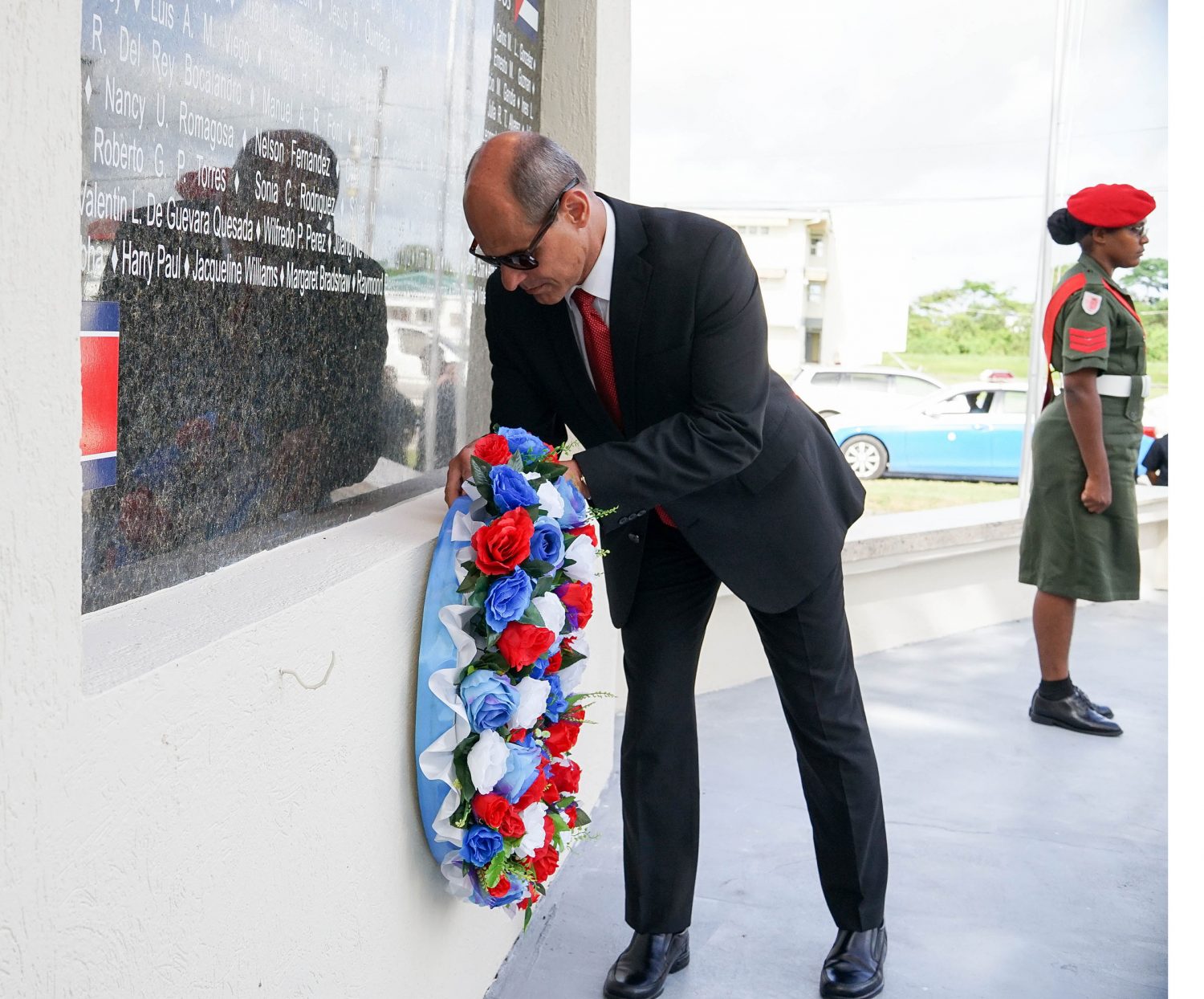Guyana and Cuba recommitted to enhance their relations through increased collaboration and cooperation in the fields of health, environmental conservation, disaster management and tourism, among others, during a meeting between President David Granger and Cuba’s Vice Minister of Foreign Affairs Rogelio Sierra Diaz.
The meeting took place at State House on Wednesday, when Granger hosted the visiting Cuban official. He also accepted an invitation from Cuban President Miguel Diaz-Canel to visit Cuba at a date to be determined.
Diaz, who ended his two-day visit to Guyana on Thursday, also met with Dr Douglas Slater, CARICOM Assistant Secretary-General (Human and Social Development) at the CARICOM Secretariat, where he expressed a desire for the Cuban President to meet with CARICOM ministers at a mutually convenient time. It was agreed that further discussions would be held and arrangements made to facilitate the request.
Diaz also paid courtesy calls on Prime Minister Moses Nagamootoo, the Director-General and other officials of the Ministry of Foreign Affairs, and Leader of the Opposition Bharrat Jagdeo.
According to the Department of Public Information, Granger, in welcoming Diaz, said that since the two countries established diplomatic ties on December 8th, 1972, they have enjoyed a strong friendship based on shared trust, respect and mutual understanding.
Granger noted that a “large Cuban brigade” was present in Guyana and there was substantial interaction between the two countries through CELAC (Community of Latin American and Caribbean States) and other regional bodies, which Guyana regards as a continuation and reaffirmation of “our historic friendship.”
Guyana has always supported Cuba and the removal of the economic blockade imposed by the United States, he said.
Cuba and Guyana, Diaz said, were in discussions to see how best the cooperation in the health sector can be improved for mutual benefit. “We are also in the position of strengthening the collaboration in whatever area you may have needs. I believe it is very important to remain united and work together,” he was quoted as saying.
Welcoming Cuban expertise and investment in Guyana in terms of its “green economy,” Granger said, “We would like to establish cooperation in tourism and environmental conservation. This is one of the areas that we have not been able to collaborate in.” These areas, he added, were of vital importance to advancing Guyana’s green agenda and economic development.
Diaz noted that Cuba is ready to lend whatever assistance it can in these areas as they have already implemented stringent environmental conservation and protection measures and policies, which could be used as a study for Guyana.
In the meeting between Diaz and Slater, a CARICOM Secretariat release said they discussed a number of issues, including the disabilities project for which a trilateral memorandum of understanding among the governments of Guyana and Cuba and CARICOM had already been signed. A centre has already been built by the Guyana Government and a team from Cuba is already in Guyana working on the project, which will be implemented in phases. Slater noted that when the initial phase is successfully completed in Guyana, the project would be extended to the other CARICOM Member States.
In discussions on the extension of programmes in the School of Art at the Edna Manley School in Jamaica, Cuban Ambassador to Guyana Renaldo Socorro said the Jamaican government had been contacted and the areas in which Cuba could provide assistance were identified. This may include additional infrastructural requirements and various options were being explored to address the challenges. Slater assured that the CARICOM Secretariat would engage the Edna Manley School to explore the available options.
On matters related to trade, Assistant Secretary-General (Trade and Economic Integration) Joseph Cox, who was at the meeting, noted that Haiti has expressed an interest in joining the trade and economic partnership agreement that now applies in 12 Member States.
In relation to the CARICOM-Cuba Joint Commission, in which the second protocol to improve trade relations was signed in November, 2017, Cox advised member states to accelerate their efforts to satisfy the legal requirements to be party to the commission. Under the agreement, more than 300 Caribbean products would have fees removed for export to Cuba. Noting that the protocol was still to be addressed legally by individual CARICOM member states, Diaz said, “The Cuban economy needs the exports of the CARICOM countries and there are great opportunities for CARICOM countries to send exports to Cuba. We need to ratify this protocol so we can start using it.”
On Wednesday, Diaz paid tribute to the 1976 Cubana Air Disaster victims by laying a wreath at the Monument to the Victims of Terrorism at the University of Guyana’s Turkeyen campus. He also visited the Centre for the Stimulation of Children, Adolescents and Youth with Special Educational Needs Associated with Disabilities at the Cyril Potter College of Education.










